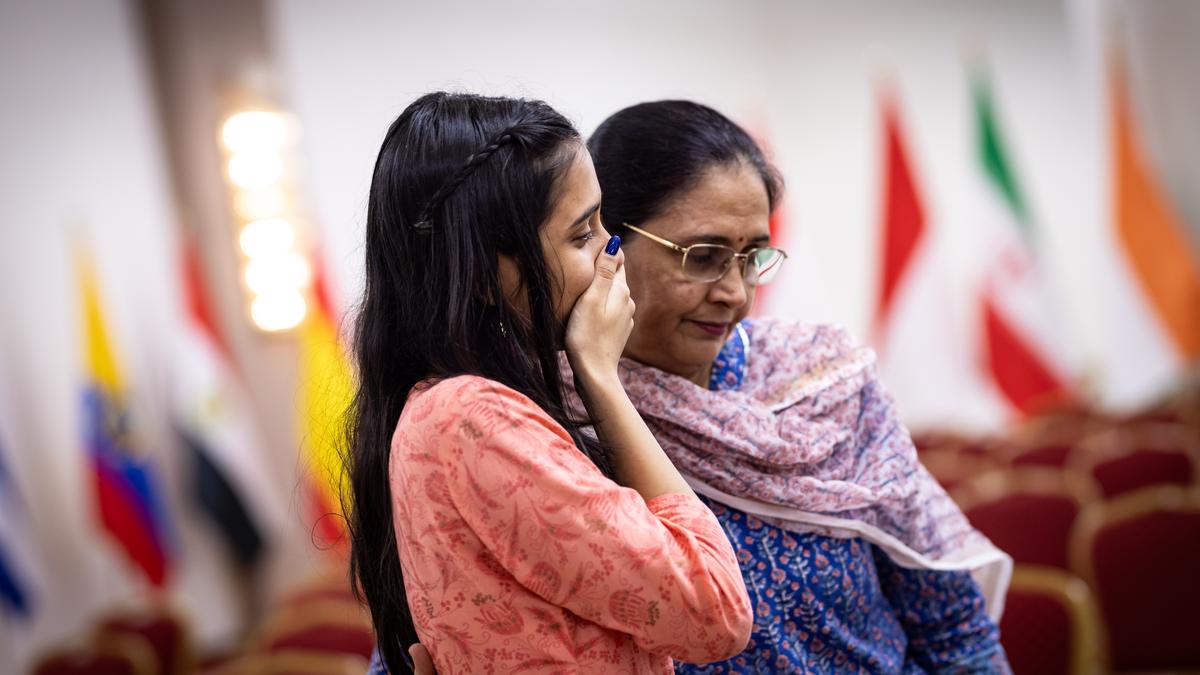Off-side: Endgame with a heartline
Divya Deshmukh couldn’t quite believe it. That this was happening with the whole world watching. A World Cup on the line, her opponent, the much-experienced Koneru Humpy, was moments away from defeat. And Divya, 19 and trembling, was suddenly on the cusp of history.
She had her hands on her face. Not in triumph, not yet. More like someone shielding herself from a truth she wasn’t ready to accept.
When Humpy finally conceded, they shook hands. And then Divya’s resolve snapped. She turned to her mother, sobbing into her arms.
We tell ourselves that sport is geometry and nerve; the clean line of a rook, the hundredth-of-a-second margin at the tape. But what keeps people in their seats, what makes a victory feel communal, is the human spillover. The feeling that leaks through.
Jana Novotna’s outpouring had arrived with a loss. She had Steffi Graf 1–4 down in the final set at the 1993 Wimbledon final. Five games later, the trophy belonged to Graf, and Novotna was standing dazed on Centre Court. The tears came without ceremony. The Duchess of Kent took her in her arms, and the photograph made Novotna beloved in a way statistics never could. She came back and won the title in 1998, but it’s that endearing image from earlier that fans remember her for.
Sport is not just the numbers and results, but the ragged, embarrassingly human truth that hides beneath them. It’s a crying Lionel Messi finally lifting a major trophy for Argentina at the 2021 Copa America to exorcise the ghosts of decades past. Or Rohit Sharma’s moment alone after ending India’s ICC trophy drought at the 2024 T20 World Cup. Or Roger Federer crying for himself and his sport — not in defeat, but because he knew what it meant to leave it all behind.
Vulnerability is a magnet; it pulls us closer to our heroes. In that unguarded moment, their aura of invincibility fades, and what remains is real and human. That’s when our heroes stop towering above us and start standing beside us.
We remember Novotna because she didn’t hide her heartbreak. She let the world see what losing felt like. We will remember Divya because she let the win do the same. The outcomes were opposite, but the meaning was identical. The moves and margins belong to the experts; the emotion to everyone.
And on some days, if we’re lucky, the two come together — the mind and the heart, the genius and the feeling.
And somewhere, someone who has never played a single rated game, who couldn’t tell the difference between a Catalan and a Caro-Kann, feels a private jolt of recognition. While life and society often encourage restraint, sport gives us permission to embrace our emotions.


